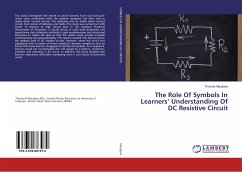
Broschiertes Buch
16. Januar 2025
Verlag Unser Wissen

27,99 €
Versandfertig in 6-10 Tagen
Broschiertes Buch
17. Mai 2016
LAP Lambert Academic Publishing
Broschiertes Buch
16. Januar 2025
Ediciones Nuestro Conocimiento
29,99 €
Versandfertig in 6-10 Tagen
Broschiertes Buch
16. Januar 2025
Edizioni Sapienza
29,99 €
Versandfertig in 6-10 Tagen
Broschiertes Buch
16. Januar 2025
Editions Notre Savoir
29,99 €
Versandfertig in 6-10 Tagen
Broschiertes Buch
16. Januar 2025
Edições Nosso Conhecimento
Ähnliche Artikel

Broschiertes Buch
Die Bedeutung der Didaktik im Fernunterricht
26. Juni 2024
Verlag Unser Wissen

Broschiertes Buch
Leistungen von Grundschülern bei muttersprachlichen und englischen Textaufgaben
31. Juli 2024
Verlag Unser Wissen

Broschiertes Buch
11. April 2024
Verlag Unser Wissen

Broschiertes Buch
Eine Studie über die Probleme von Sekundarschülern
24. September 2023
Verlag Unser Wissen

Broschiertes Buch
Eine Fallstudie zum Online-Englischlernen bei TESSE.IO
26. April 2022
Verlag Unser Wissen

Broschiertes Buch
Eine Fallstudie über die Entwicklung von Kompetenzen in der spanischen Sprache
28. September 2023
Verlag Unser Wissen

Broschiertes Buch
die Bedeutung professioneller Vorleser und Transkriptoren für sehbehinderte Menschen
27. Februar 2024
Verlag Unser Wissen

Broschiertes Buch
16. April 2024
Verlag Unser Wissen

Broschiertes Buch
Die pädagogische Relevanz
30. September 2024
Verlag Unser Wissen
Ähnlichkeitssuche: Fact®Finder von OMIKRON
